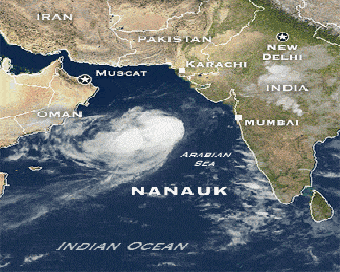 PM Modi visit USA
PM Modi visit USA Only the mirror in my washroom and phone gallery see the crazy me : Sara Khan
Only the mirror in my washroom and phone gallery see the crazy me : Sara Khan Karnataka rain fury: Photos of flooded streets, uprooted trees
Karnataka rain fury: Photos of flooded streets, uprooted trees Cannes 2022: Deepika Padukone stuns at the French Riviera in Sabyasachi outfit
Cannes 2022: Deepika Padukone stuns at the French Riviera in Sabyasachi outfit Ranbir Kapoor And Alia Bhatt's Wedding Pics - Sealed With A Kiss
Ranbir Kapoor And Alia Bhatt's Wedding Pics - Sealed With A Kiss Oscars 2022: Every Academy Award Winner
Oscars 2022: Every Academy Award Winner Shane Warne (1969-2022): Australian cricket legend's life in pictures
Shane Warne (1969-2022): Australian cricket legend's life in pictures Photos: What Russia's invasion of Ukraine looks like on the ground
Photos: What Russia's invasion of Ukraine looks like on the ground Lata Mangeshkar (1929-2022): A pictorial tribute to the 'Nightingale of India'
Lata Mangeshkar (1929-2022): A pictorial tribute to the 'Nightingale of India' PM Modi unveils 216-feet tall Statue of Equality in Hyderabad (PHOTOS)
PM Modi unveils 216-feet tall Statue of Equality in Hyderabad (PHOTOS)Hockey India has announced a 54-member core probable squad for the upcoming senior men’s
- Satwik-Chirag return as BAI names 14-strong squad for BWF Sudirman Cup Finals 2025
- Men’s Sr Hockey Nationals to be played in division-based format from April 4
- Mensik denies Djokovic 100th title in Miami final
- KIPG: Son of a vegetable vendor, Bihar’s Jhandu Kumar eyes Worlds, 2028 Paralympics
- Hardik Singh credits hard work and team unity for receiving HI Midfielder of the Year award
Scientist warns of more frequent cyclones in Arabian Sea Last Updated : 12 Jan 2018 07:35:53 PM IST 
(File Photo) Cyclonic turbulence is expected to increase in the Arabian Sea over the coming years, a scientist warned on Friday.
Looking at the data since 2014, experts see a rise in the number of such instances, a phenomenon which might be attributed to global warming, said former Union Earth Sciences Secretary Shailesh Nayak.
"Cyclones in the Arabian Sea are likely to increase in the near future," he said at the two-day national workshop on 'Coastal Zone Management - Policies to Action' inaugurated here on Friday.
"Looking at the pattern of the cyclones that have begun appearing in the Arabian Sea since a couple of years, we can see that it is bound to increase in coming years.
"In 2014, we had one cyclone and in 2015 we had two. This year also we had 'Ockhi' that was expected to hit the western coast. Earlier, we have never had such cyclonic action in the regions and not with the magnitude and frequency we are seeing now. Now it has almost become an annual phenomena," Nayak told the media.
The western coast of India saw, for the first time, an extremely severe cyclonic storm -- Nilofar -- in October 2014, where winds greater than 100 miles per hour blew over the Arabian Sea, and forced the local authorities to evacuate around 30,000 people.
In 2015, the Arabian Sea saw two more cyclones, even stronger than Nilofar, in just one week. Cyclone Chapal blew at a wind speed of 150 miles per hour and Cyclone Megh killed 27 people.
Last month, Cyclone Ockhi nearly touched the coast of Gujarat and a heavy destruction was feared then. After Megh, Ockhi was the most intense storm measured by experts, with winds blowing over 115 miles an hour.
"This increasing activity can be attributed to global warming and can be taken as a warning sign for the mankind," said Nayak.
The event, jointly organised by the Gujarat Ecology Commission (GEC) and the Society of Integrated Coastal Management (SICOM), sees stakeholders like the government, NGOs, scientific institutes, international and national agencies, the World Bank, Ministry of Environment, Forest and Climate Change, and the Zoological Survey of India, share their experiences on the last seven years of the Integrated Coastal Zone Management Programme.
IANS For Latest Updates Please-
Join us on
Follow us on








172.31.16.186







